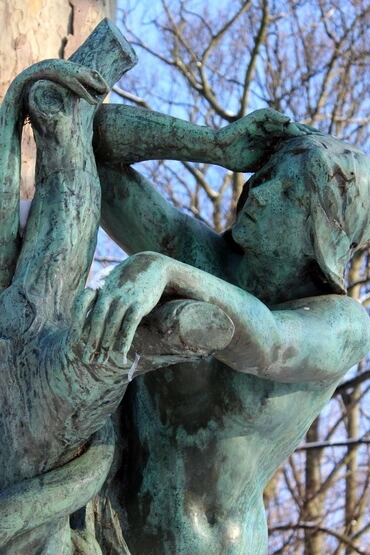Explanation of Genesis 3:1
Napsal(a) Brian David

Serpents represent what we know from our bodily senses, and the reasoning based on our senses. Since the people of the Most Ancient Church had become more external, they were susceptible to the lure of trusting their senses more than they trusted the leading of the Lord. That was particularly true for the sense of self the people had been given, which is represented by the woman. Eating of the trees in the garden represented taking in desires for good and true ideas from the knowledge granted them by the Lord.
So here, for the first time, we see people, from their own senses, actually questioning the Lord. From their senses they wished to explore the knowledge represented by fruit of the garden, but wondered why they were denied the tree of knowledge.
(Odkazy: Arcana Coelestia 194, 195, 196, 197)
Arcana Coelestia # 2805
2805. 'Where is the animal for a burnt offering?' means, Where are those members of the human race who are to be sanctified? This is clear from the representation of sacrifices, in particular burnt offerings. Burnt offerings and sacrifices were representative of internal worship, see 922, 923; they were made from the flock and from the herd - when from the flock, lambs, sheep, she-goats, kids, rams, or he-goats were used, when from the herd, oxen, young bulls, or calves, all of which meant various kinds of celestial and spiritual things - see 922, 1823, 2180; and by means of them people were sanctified, 2776. From all this it may become clear that Isaac's question, 'Where is the animal for the burnt offering?' means, Where are those members of the human race who are to be sanctified? The same is more plainly evident from what comes next, that is to say, from the reply made by Abraham his father, 'God will see for Himself to the animal for a burnt offering', verse 8, which means that the Divine Human will provide those who are to be sanctified; from the fact that later on he saw a ram behind him caught by its horns in a thicket, and offered that as the burnt offering, verse 13, which means members of the human race who belong to the Lord's spiritual Church; as well as from the details that follow after this in verses 14-17.






